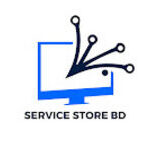Importance of Having a Website for Your Brand
People won’t know it exists, and those who accidentally find it might not take it seriously. The internet is the first place people go when they want to learn about something, especially a brand. This behavior isn’t limited to tech-savvy millennials or Gen Z; even older generations now search online before making decisions. Having a strong, professional website is no longer optional—it’s essential for credibility, visibility, and growth.
When someone hears about your brand, whether through a friend, a social post, or an ad, their first instinct is to search for you online. If they don’t find a website—or worse, they find a poorly designed, outdated one—you lose trust before you even get a chance to engage. A well-designed website acts as your digital handshake, your elevator pitch, and your store window all at once. It’s where first impressions happen, and in many cases, it determines whether a potential customer will take the next step.
A brand website allows you to control your narrative completely. On social media, algorithms and platform rules determine who sees what and when. But on your own site, you decide how your story is told. You can showcase your values, your history, your mission, and the faces behind your business. This is crucial for building a connection with your audience. People like to buy from people, not faceless corporations. A good website lets them see the heart behind your brand.
Search engines like Google are still the starting point for most online journeys. If your business doesn’t have a site, or if it isn’t optimized for search, you’re invisible to a huge percentage of your potential audience. A dedicated website gives you the opportunity to rank for relevant keywords, appear in local searches, and attract organic traffic over time. Tools like Google Search Console and Google Analytics help you monitor what’s working and where to improve.
For eCommerce brands, your website is your storefront. But even for service-based businesses, consultants, creatives, or local shops, it functions as your most powerful sales tool. It lets you publish pricing, capture leads, allow bookings, and answer frequently asked questions—all while you sleep. Unlike physical locations or even social platforms, your site never closes. It works for you 24/7.
Having a professional domain name and email address that match your website boosts your perceived professionalism. Imagine receiving an email from [email protected] versus [email protected]. Which one seems more trustworthy? This attention to detail reflects on your overall brand image. Your website ties all of your marketing channels together—from SEO to email marketing to paid ads. Everything leads back to the hub, the anchor, the destination: your website.
A good website improves your brand recall. When someone sees your brand logo, colors, or messaging on your site, and then sees it again on social media or in an ad, it reinforces your identity. Consistency builds trust, and repetition builds recognition. Brands like Nike, Apple, and Coca-Cola have mastered this online. Their websites are not just informational—they’re emotional, immersive experiences that reflect their identity.
People are visual creatures. The look and feel of your website influence how people perceive your brand. If your site looks cheap or unprofessional, users may assume your products or services are too. A high-quality website design builds authority and reflects care and effort. Studies have shown that users form an opinion about a website within 0.05 seconds. That split-second judgment influences bounce rate, engagement, and conversion.
If you’re running paid ads—on Google, Facebook, Instagram, or elsewhere—your website becomes the landing page. A slow, confusing, or unoptimized page will tank your ROI. Every dollar you spend on ads must lead somewhere worthwhile. A professional site can dramatically improve your conversion rate, especially if it has fast loading speeds, mobile responsiveness, and clear calls-to-action. A great website turns clicks into customers.
Content marketing works best when it’s anchored on your site. Blog posts, how-to guides, case studies, testimonials, and even product tutorials live best on your domain. When you create valuable content consistently, not only do you attract organic traffic, but you also position your brand as an authority in your industry. Tools like Yoast SEO or Rank Math make optimizing each piece of content easier, ensuring it reaches the right people.
Modern customers care about values, ethics, and social impact. Your website gives you a place to communicate what you stand for—sustainability, fair labor, innovation, customer care. Whether you’re B2B or B2C, showcasing your values on your website humanizes your brand and appeals to conscious consumers. It allows you to go deeper than you can in an Instagram caption or a tweet.
Email marketing remains one of the highest-ROI digital channels. But in order to grow your list, you need a website where people can subscribe. Whether you offer a newsletter, free resource, or exclusive deal, your site is the gateway to building that direct line of communication. Once they’re on your list, you’re no longer competing with the noise of social media—you’re in their inbox.
A brand without a website is at the mercy of platform policies and algorithm changes. Imagine relying solely on Instagram and then waking up one day to find your account suspended or your reach cut in half. This has happened to countless businesses. Owning a website gives you independence. It’s your real estate. You can redesign, rebrand, or reposition yourself without asking for permission or waiting for a platform update.
Customer service is another major benefit. Through features like live chat, FAQ sections, contact forms, and support portals, your website can resolve issues before they become problems. You save time, reduce churn, and improve satisfaction. It’s also easier to track and improve these systems over time compared to managing scattered messages across various social platforms.
Building trust is a long game, and your website plays a central role. It offers transparency through detailed product descriptions, clear policies, customer reviews, and third-party certifications. For new or small businesses especially, this is critical. People are hesitant to spend money online unless they feel safe and confident. A well-structured website provides that assurance.
It also creates opportunities for collaboration. Potential partners, investors, or influencers often judge your brand by its website. A compelling, up-to-date site signals that you’re serious and ready for growth. It makes your brand look stable and scalable, even if you’re operating from a home office or a co-working space. First impressions matter not only to customers, but to everyone in your ecosystem.
With tools like Shopify, WordPress, and Webflow, building a stunning website is more accessible than ever. Even without coding skills, you can launch a responsive, secure, and conversion-optimized site in days—not weeks. And if you choose to hire a developer or designer, the return on investment almost always justifies the cost.
Let’s not forget about analytics. A website allows you to collect data on user behavior—what pages they visit, how long they stay, where they drop off. This insight is gold. It helps you refine your messaging, improve your user experience, and identify new business opportunities. Third-party platforms rarely give you this level of granularity.
A brand that invests in a strong website today is investing in long-term resilience. Trends change, apps come and go, but a well-maintained website will always be relevant. It’s your anchor in the ever-changing sea of digital noise. It gives you a home base that reflects your growth and evolves with your audience.
The longer you wait to build a professional website, the more ground you lose to competitors. They’re capturing your traffic, your leads, and your customers. Whether you’re a solopreneur, a startup, or an established enterprise, the digital storefront you create today shapes your trajectory tomorrow.
There’s an old saying in branding: “If you’re not telling your story, someone else is telling it for you.” Your website lets you tell it your way. It allows you to write your own narrative, guide your own customer journey, and build your own brand equity. That’s not just important—it’s powerful.


